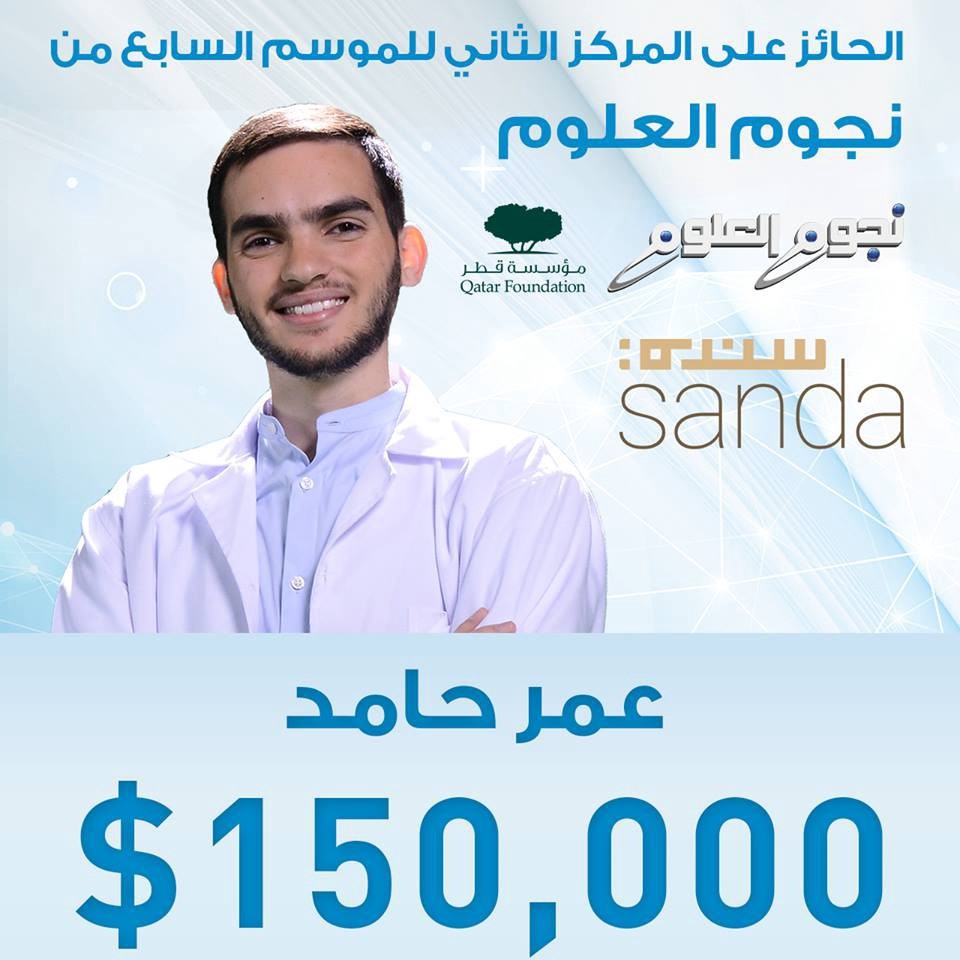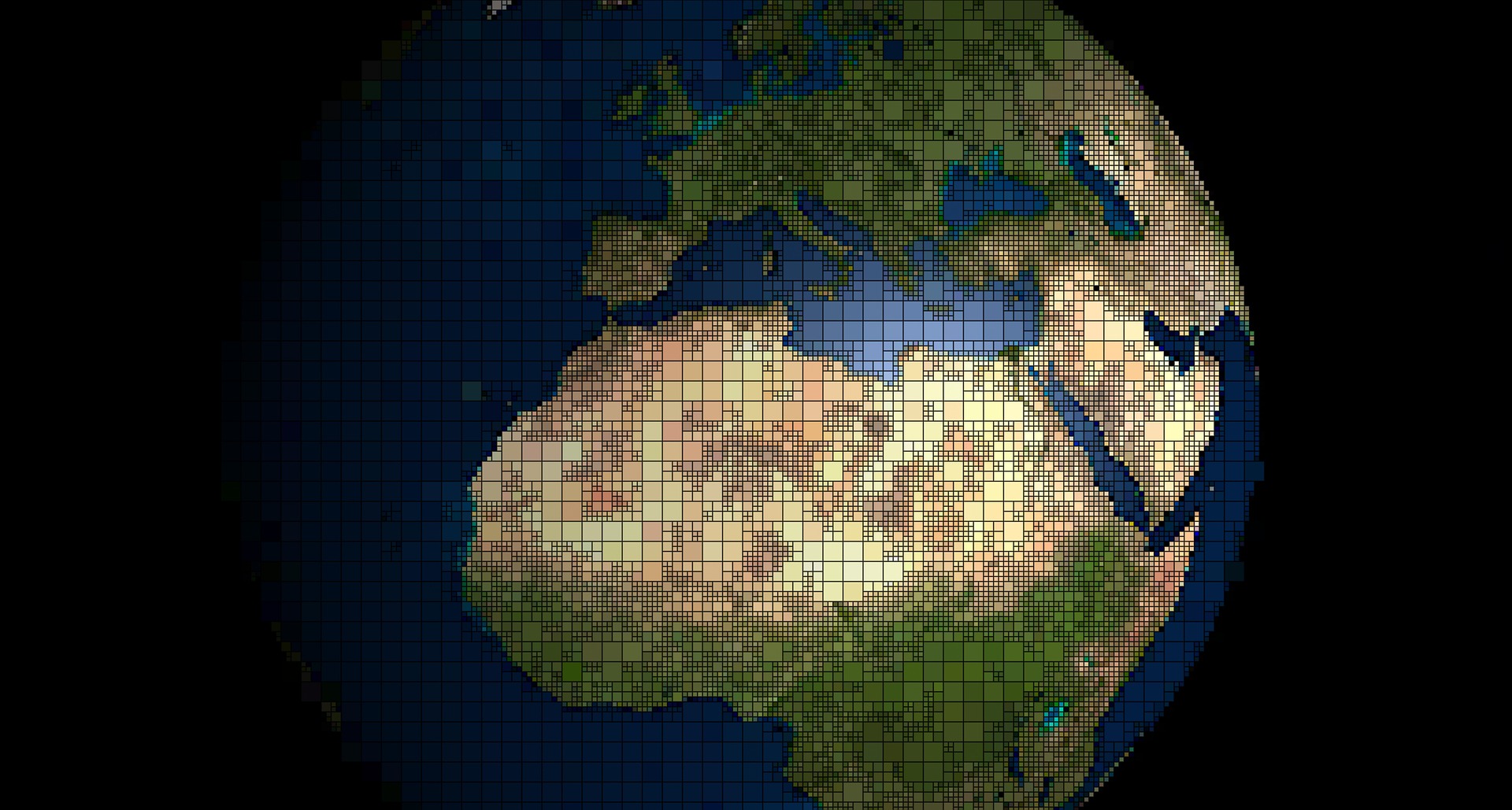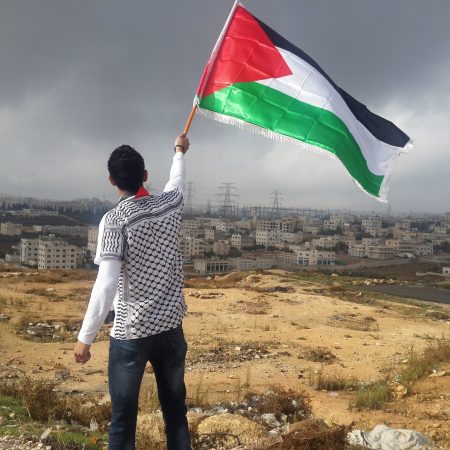American Muslim entrepreneur Omar Hamid wins 2nd place on Middle East reality TV show for ‘prayer chair’ innovation
By Sara Chaudhry
Ummah Wide
Omar E. Hamid, an Atlanta-based entrepreneur recently took part in the MBC reality television show Stars of Science, with an unlikely innovation that could help millions of Muslims throughout the world perform their five daily prayers. Hamid won second place on the show and $150,000 to help launch Sanda and their “Prayer Chair,” which aims to help elderly and people with physical disabilities to perform their prayers with ease. The Prayer Chair uses assistive sitting and standing to help eliminate any interference caused by normal chairs during congregational prayers.
Hamid, a serial entrepreneur, is one of the co-founders of LaunchGood, “a global crowdfunding platform that supports Muslims launching good across the world by helping them raise funds for their projects.” Hamid is paving the way forward for using entrepreneurship for social good. He grew up in Georgia, USA where he developed an interest in the Muslim world’s legacy of innovation and contribution all over the world, which inspired many of his own ideas. As a young creative designer and entrepreneur, Hamid is always thinking outside of the box, looking beyond the horizon and using his ideas to bring a benefit to his community.
Hamid talked to Ummah Wide about his time on Stars of Science and shares his experience of what life is like in Doha.
How did you get involved with Stars of Science?
I didn’t fully understand it was a show until after I was accepted. Turns out there are about 10k applicants. The first stage, there are hundreds of people who are accepted to fly in and present the idea in front of 3 judges. They then narrow down to about 40. Coming in with a low-tech product, competing with high-tech products, I didn’t think it would go far. I get the green lights and that means I’m now going to be considered, from the 40, to enter the final 12. I already didn’t expect the project to go that far so getting into the final 12 was quite unlikely. Next thing I know, we get the call and I make it into the final 12. This means I pack my bags for Doha, this is when the TV show really starts.
How did you come up with an idea for the show?
My wife’s uncle, Saleh Mubarak, recommended I apply to Stars of Science?—?I never heard of it before. He worked in Doha at the time and heard it was a good program for young innovators. Dr. Saleh Mubarak and myself discussed the simple needs of solving the problem of when people pray on chairs in the masjid, they are either praying in-line and blocking the person behind them, or they are a step ahead of everyone else. This is the first chair specifically designed for the masjid, and through this innovation there are many further applications that can benefit from a chair like this beyond the mosque.
As a designer and entrepreneur what is important to you?
I’m hooked on ideas with big positive impact for people. I’m at a point where I realize the world is full of many amazing ideas?—?I want to be part of what helps make these ideas hit their potential. As a co-founder of LaunchGood.com, this is what makes me excited, people across the globe are doing great work, let’s help make their impact even bigger. I want to be part of the story that inspires a generation to revive our legacy of innovation.
What other ideas are represented on the show?
Cutting-edge high-tech innovations from brain scanners that can monitor your level of drowsiness to a sleeve that can translate hand movements into audible words for our friends who are mute to heart monitors that can identify the cause of your heart rate spikes to a goalie training machine you can control from a tablet and the list goes on. My project is a chair, when everyone came in the labs to code, I rolled up my sleeves and cut wood.
For Western audiences and even for most Muslims living in the West there is usually only one narrative told about the Gulf countries. What has your time in Qatar been like? And has your experience on the show helped to counter negative stereotypes?
Great question. My main exposure to the Middle East was visiting my family in Egypt every two years as I was growing up. Living in the south in the United States, I was fed a certain image of the gulf countries through American media which I found was quite different when I got there. Through the Stars of Science experience I was able to visit Dubai and Doha. Most of my time was spent in Doha and I can confidently say I have never seen so much investment in education. I was surrounded by the top universities and top companies all pushing the envelope when it comes to cutting edge research, and education. I also admire the foresight of the Qatari leadership to invest so much in making innovation desirable once again through efforts such as Stars of Science that is watched by millions of people across the Arab world. I’m confident these viewers will turn out to be the next global leaders in innovation, design and problem solving.
Editor’s note: Omar Hamid hopes to use his Prayer Chair in mosques around the world and beyond. Follow Omar on Facebook and Twitter



















2015
1,453 views
views
0
comments